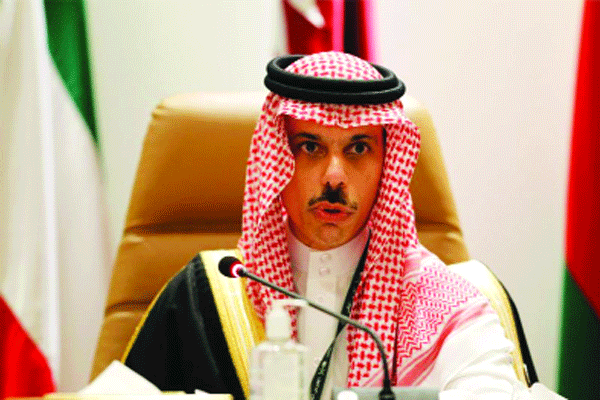Saudi Arabia is discussing with India the impact of the Taliban's return to power
The media is told that Saudi Arabia’s Foreign Minister, Faisal bin Farhan Al Saud, is in New Delhi to review the bilateral Strategic Partnership Council Agreement of 2019. The real story is what both are discussing about the Taliban’s return to power in Afghanistan and the question of recognising their interim Government. The Saudi Minister’s visit is significant for two reasons. One, that the Kingdom which influences global oil policy through petrol and the Islamic world through its status as the Holy Territory should consult India on Afghanistan is significant in itself. Two, the visit caps India’s exercise to contact countries involved in the Afghan affair before formally articulating its policy on Afghanistan in the United Nations General Assembly. The policy sees a clear link between the Taliban’s links with terror groups, the questionable role of Pakistan and recognition of a non-inclusive interim Government. Prime Minister Narendra Modi has said as much at the recent SCO meeting that the world should “thoughtfully” and “collectively” decide on recognising the new setup given its lack of inclusivity, the possibility of the Taliban’s return to power encouraging other extremist groups to seek power through violence and the fear of drugs, arms and human trafficking. The Saudi-India talks are being held in the backdrop of the former’s stand on the Taliban and terror that appears to be at variance with India’s.
Before his Delhi visit, Al Saud had said the interim Taliban Government was a “step in the right direction towards achieving security and stability, rejecting violence and extremism, and building a bright future in line with these aspirations”. He sought to balance it by adding that the choices of the Afghan people about their future should be without “external influences”. Given their longstanding and friendly ties, India and Arabia may see this statement in light of Saudi Arabia’s regional compulsions. These compulsions could probably be dictated by Arabia noticing the growing influence of Qatar, Pakistan and Turkey in the Afghan affairs. Pakistan has previously differed with Arabia over foreign policy and even questioned the latter’s claim to leadership of the Islamic world. The Saudis have been neutral on Kashmir of late. Their relations with Qatar have also been going through a lean patch. The relations with Turkey are improving only now, after a public spat over the assassination of journalist Jamal Khashoggi. These three countries, Pakistan in particular, may find it difficult to convince the world community that they told the Taliban that a precondition to the recognition of their Government is the severance of their links with terror groups and an assurance to disallow them to operate from inside Afghanistan. While ties with Arabia can help rebalance India’s geopolitics in the region, India’s closeness to the United States provides the Kingdom the chance to regain its place on the global anti-terror table in light of the thick ties it had with the Taliban before 9/11.


























